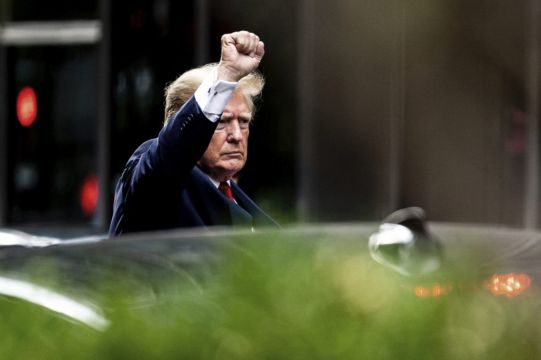Former US president Donald Trump said he invoked the fifth amendment and would not answer questions under oath in the long-running New York civil investigation into his business dealings.
Mr Trump arrived at New York attorney general Letitia James’ offices on Wednesday morning, but sent out a statement more than an hour later saying he declined to answer the questions under the rights and privileges afforded to every citizen under the United States Constitution.
Anything he said during the deposition could have been used against him in a criminal case.
While Ms James’ investigation is civil in nature, the Manhattan district attorney is running a parallel criminal probe.
The fifth amendment establishes a person’s right not to “compelled in any criminal case to be a witness against himself”.
In the most direct sense, that means criminal defendants do not have to give damning evidence in their own cases.
But it has come to apply in non-criminal contexts too.







